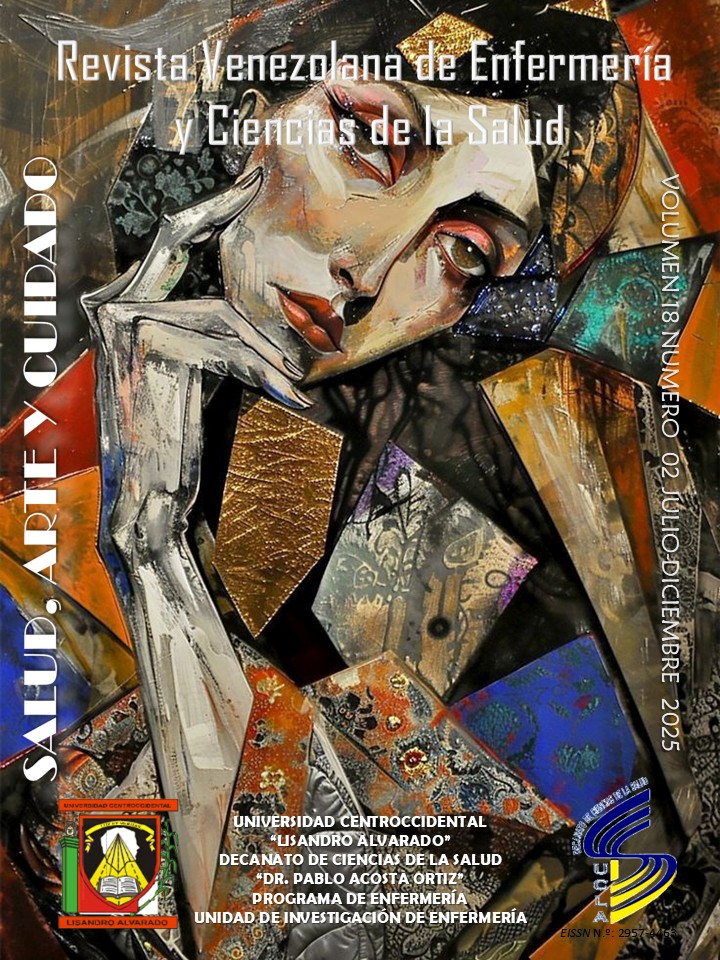Educational Leadership as a driver of transformation in higher education: analysis of its impact on institutional quality and equity
DOI:
https://doi.org/10.5281/zenodo.17451404Keywords:
Educational leadership, educational transformation, higher educationAbstract
Educational leadership in higher education plays a key role in institutional transformation, affecting academic quality and equity within the educational system. This article analyzes the impact of various leadership approaches on university management, faculty development, and student performance. Through a theoretical review and the study of experiences in different institutions, leadership strategies that promote innovation, inclusion, and sustainable development of universities are identified. The importance of transformational and participatory leadership in reducing educational gaps and ensuring accessible, high-quality higher education is emphasized. The findings indicate that strengthening leadership in higher education is a determining factor for continuous improvement and equity in university teaching. The article is framed within the interpretive paradigm in order to gain a deeper understanding of the experiential realities of the actors involved. The method used is based on documentary research, utilizing bibliographic techniques. This will allow direct contact with documents that support the topic of educational leadership, viewed from the perspective of leadership theories. The interpretation of the information allowed for organizing the facts into categories of knowledge based on shared actions within the universities, serving as a basis for systematizing and generating teaching strategies that guide the development of educational leadership competencies.
Downloads
References
Fullan, M. (2011). Leading in a culture of change. John Wiley & Sons.
Leithwood, K. (2006). Leadership for learning: How leadership influences student learning. In The second international handbook of educational leadership and administration (pp. 819-832). Springer.
Bass, B. (1985). Leaders and managers: International perspectives on managerial behavior and leadership. Pergamon Press, pp. 45-62.
Bass, B. y Avolio, B. (1994). The implication of transactional and transformational leadership for individual, team, and organizational development. In W. Pasmore and R.W. Woodrnan (Eds) vol. 4, pp.231- 272. Greenwich, CT. JAI Press.
Bolden, R. (2011). Distributed leadership in organizations: A review of theory and research. International Journal of Management Reviews, 13(3), 251-269.
Kezar, L. (2006). The social psychology of organizations. New York: Wiley.
Sergiovanni, T. J. (2007). Rethinking leadership: A collection of articles. Corwin Press.
Shapiro, R. (2004). Liderazgo creativo. Barcelona, Ed. Urano.
Spillane, J. (1999). Las organizaciones. Chile: Editorial McGraw Hill, 8va. Edición.
Greenleyaf, A (1977). Gerencia Estratégica y Gobierno. Barcelona España: ediciones Paidós.
Macbeath, A. (2009). La Empresa Flexible. Barcelona España: Editorial Plaza y Janes.
Bogotch, I. (2011). Ahistory of Public School Ledership. EnEnglish, F.W. TheSage handbookof educational leadership:Advances intheory, research, andpractice . (pp. 3-25). Thousand Oaks, Calif: Sage.
Murphy, J. (1995). Theknowledgebase inschool administration:Historical footingsand emerging trends. En: Donmoyer, R., Imber, M.&Scheurich, J. TheKnowledge BaseinEducationalAdministration: MultiplePerspectives.Albany, NY: TheState University of New York Press, (p. 61–73).
Carabaña, J. (2016). El informe Coleman, 50añosdespués. Revistade laAsociaciónde Sociología de la Educación (RASE), 9(1), 9-21. Recuperado de: https://dialnet.unirioja.es/servlet/articulo?codigo=5331449
Marriner, A. (2014). Modelos y Teorías en Enfermería. Ed. Elsevier Mosby. 6ta ed. España Madrid.
Published
How to Cite
Issue
Section

This work is licensed under a Creative Commons Attribution-NonCommercial-ShareAlike 4.0 International License.
Derechos del/de autor/es a partir del año de publicación
Esta obra está bajo la licencia:
Creative Commons Reconocimiento-NoComercial-CompartirIgual 4.0 Internacional (CC BY-NC-SA 4.0)
Las opiniones expresadas por los autores no necesariamente reflejan la postura del editor de la publicación ni de la UCLA. Se autoriza la reproducción total o parcial de los textos aquí publicados, siempre y cuando se cite la fuente completa y la dirección electrónica de esta revista. Los autores(as) tienen el derecho de utilizar sus artículos para cualquier propósito siempre y cuando se realice sin fines de lucro. Los autores(as) pueden publicar en internet o cualquier otro medio la versión final aprobada de su trabajo, luego que esta ha sido publicada en esta revista.







